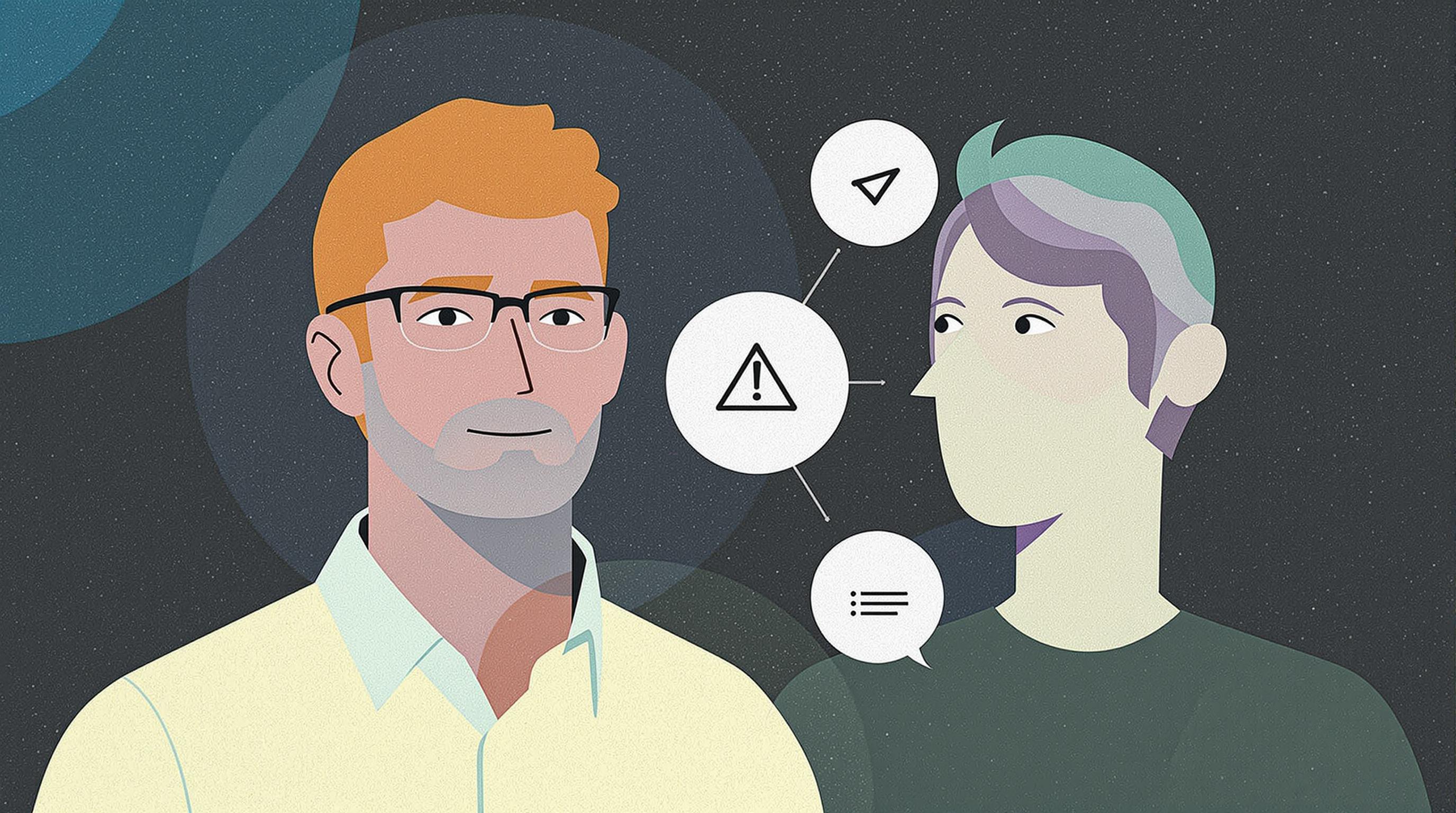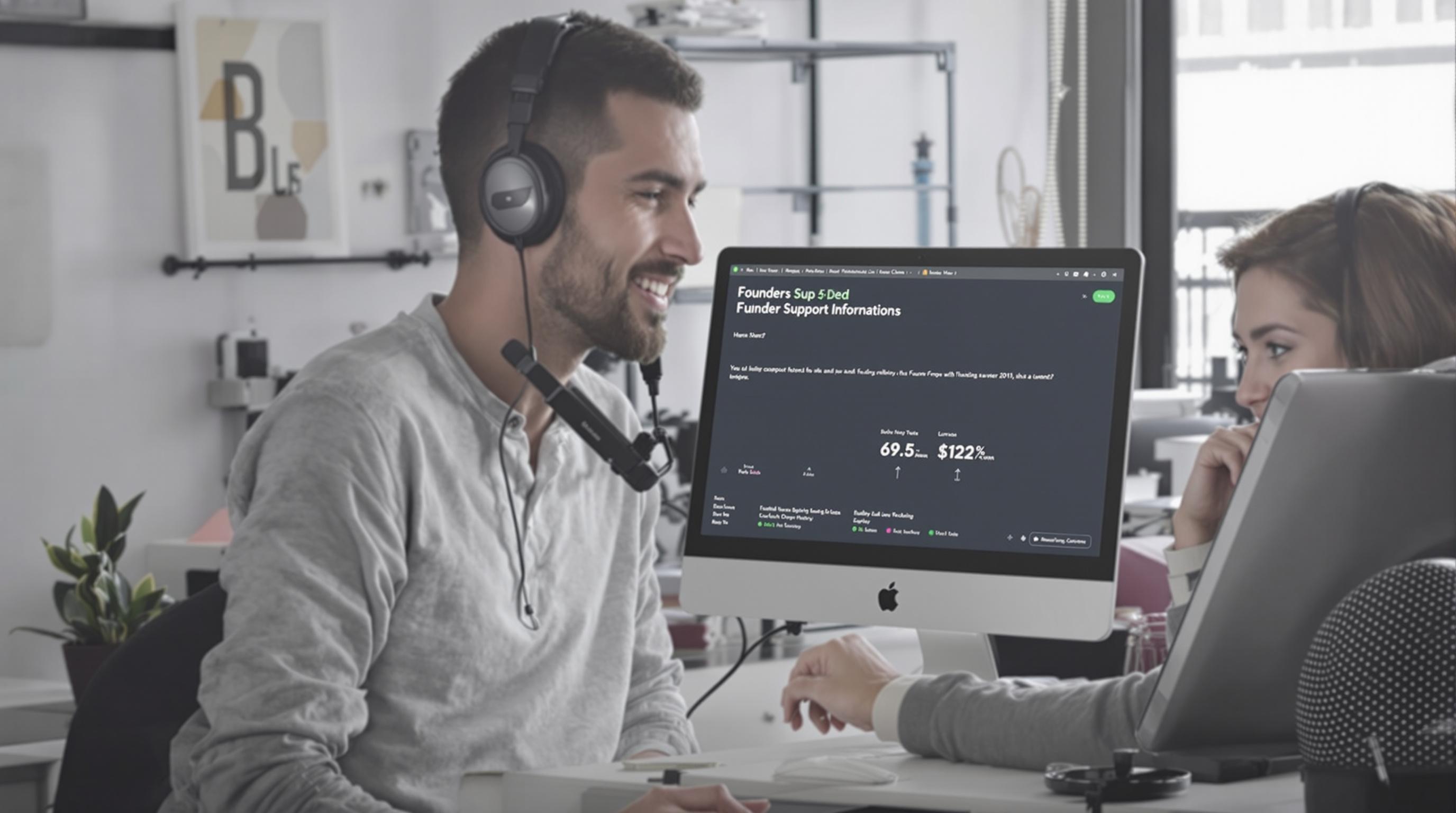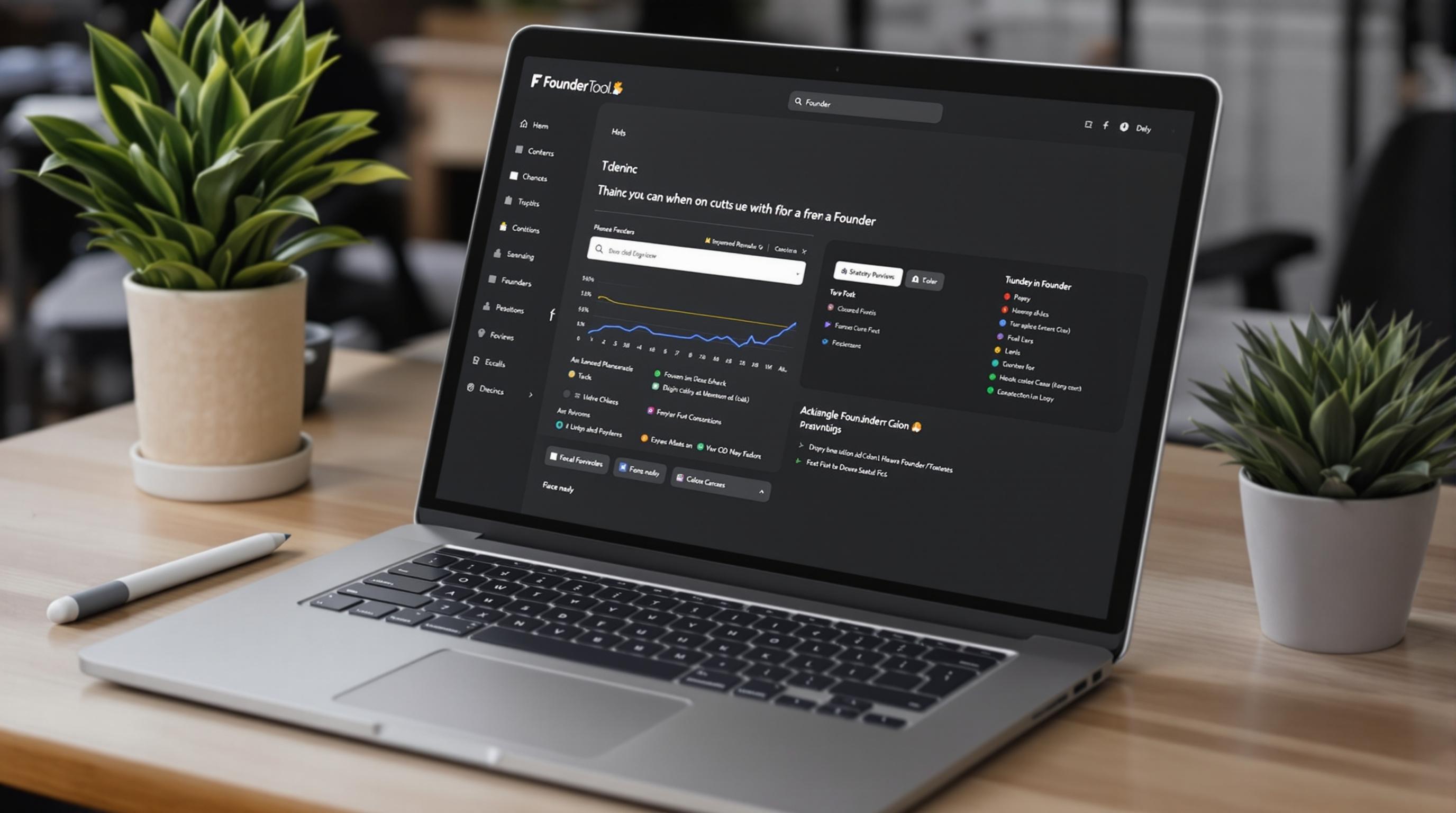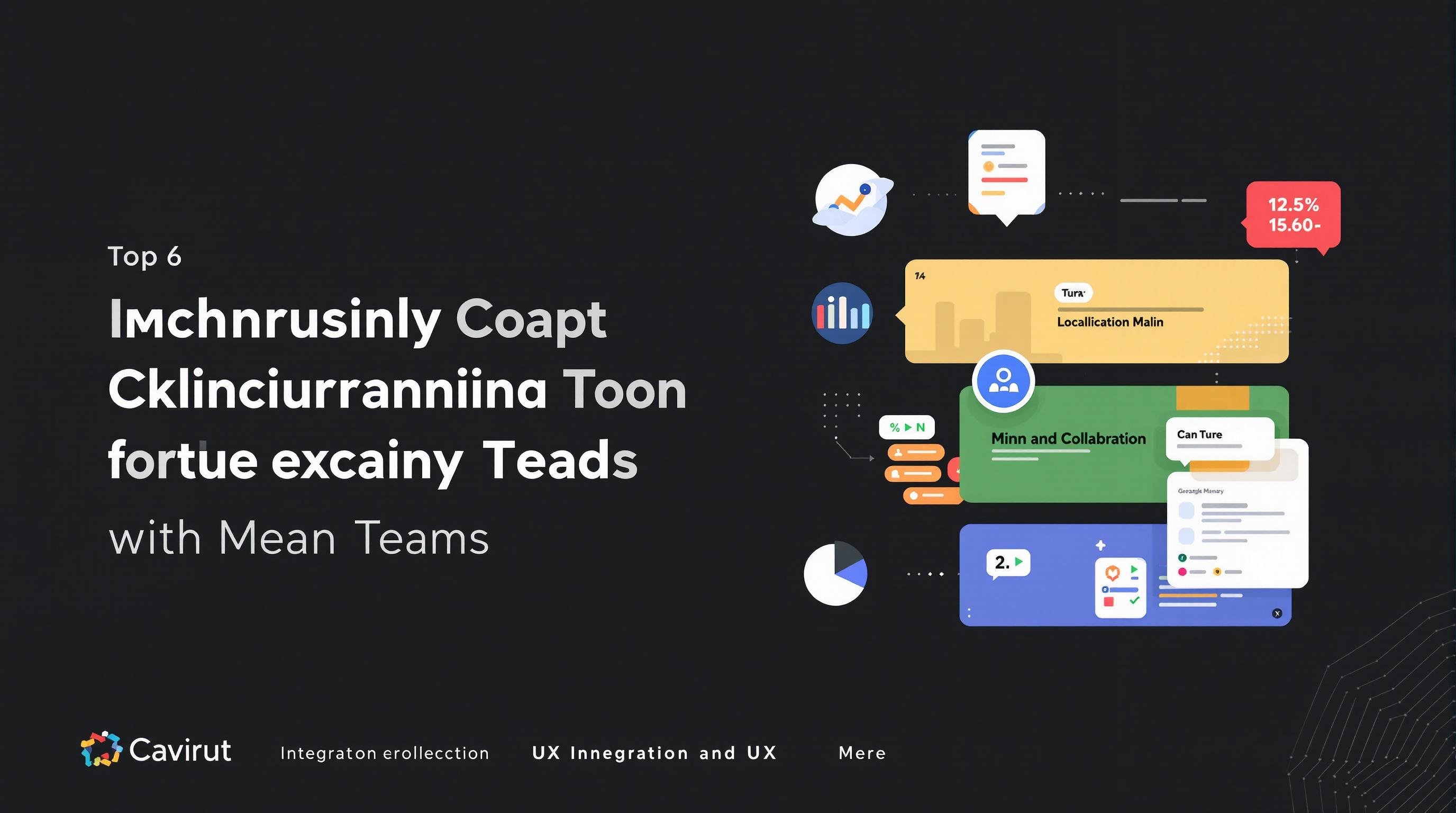Related Articles
- The Role of Cultural Norms and Social Pressure in Shaping Corporate Tax Behaviors Across Borders
- Top 6 Game-Changing HR Analytics Platforms Since 2019 Revolutionizing Employee Rights Enforcement
- The Unexpected Impact of Cultural Appropriation on Copyright Claims and Creative Ownership Debates
- Unveiling the Role of AI in Detecting Counterfeit Trademarks Before Official Approval
- The Quiet Impact of Cultural Nuances on Negotiation Dynamics in Global Business Agreements
- The Hidden Role of Psychometric Profiling in Choosing Co-Founders for Startup Success
The Hidden Role of Psychometric Profiling in Choosing Co-Founders for Startup Success
The Hidden Role of Psychometric Profiling in Choosing Co-Founders for Startup Success
Choosing the right co-founder isn't just about shared vision—it's about understanding personality dynamics through psychometric profiling. This article explores how such profiling can quietly steer startup success by revealing compatibility, resilience, and leadership potential among founders.
Let’s get real—starting a business is like assembling a band. You need the right mix of skills, temperament, and chemistry. Psychometric profiling acts like the audition process, helping entrepreneurs identify partners who not only complement their strengths but also compensate for their blind spots. Think of it as an investment in your startup’s emotional intelligence.
A Data-Driven Approach to Founder Compatibility
A staggering 65% of startups fail due to founder disagreements (CB Insights, 2021). That's more than market competition or funding issues. Psychometric tests provide objective data to avoid these pitfalls by highlighting differences in decision-making styles, risk tolerance, and communication preferences. For instance, Myers-Briggs Type Indicator (MBTI) or the Big Five Personality Traits can predict how founders react under stress or handle conflict, crucial factors when the pressure cooker heats up.
The Psychology Behind Psychometric Profiling
Originating in the early 20th century, psychometric profiling was initially for educational and occupational placement. Today, it's a sophisticated tool measuring cognitive abilities, personality traits, and emotional intelligence. When co-founders understand each other through this lens, they mitigate misunderstandings that often derail startups. It fosters empathy—the unsung hero of partnership longevity.
Imagine two founders: one thrives on structured planning; the other prefers spontaneous innovation. Without insight from psychometric testing, clashes are inevitable. However, profiling reveals their styles upfront, enabling them to establish workflows that leverage both strengths rather than fight them. This simple realization can turn potential conflicts into complementary dynamics.
Case Study: Airbnb’s Founders and Personality Diversity
Airbnb’s early success partly hinged on the distinct but complementary personalities of its founders, Brian Chesky and Joe Gebbia. Psychometric insights, though informal, helped them navigate disputes and clarify roles. Brian’s visionary, risk-taking nature balanced Joe’s pragmatic, detail-oriented mindset. According to an interview with Joe Gebbia (Fast Company, 2018), their ability to turn disagreements into productive brainstorming was a decisive factor in the company’s rise.
More Than a Gut Feeling: Science Meets Intuition
Many entrepreneurs rely on gut feelings when choosing partners, but intuition is fallible. Psychometric profiling blends intuition with science. It quantifies tendencies like resilience and leadership, traits essential during a startup’s rocky journey. For example, resilience scores can predict who will weather setbacks without crumbling. As startup environments are notoriously unpredictable, knowing who has this grit can save both time and capital.
Quick quiz: Which type of founder is more likely to tolerate ambiguity, the high openness candidate or the high conscientiousness one? According to the Big Five model, high openness relates to creativity and adaptability, while high conscientiousness leans toward orderliness and discipline. Psychometric tools reveal these nuances, guiding founders to build balanced leadership teams.
Injecting Humor Into the Mix: The “Who’s in Charge?” Game
Ever played "Who’s in Charge?" in a startup? It's that inevitable conversation where everyone waves their hand simultaneously, shouting, “No, you lead!” Psychometric profiling can save hours of this chaos by clarifying leadership style and decision-making preferences before tension mounts. Picture a group of founders with testing results in hand—it’s like having a game plan for the corporate jungle gym.
Psychometrics and Conflict: The Hidden Weapon
Conflict is unavoidable, but its frequency and intensity are not. By understanding each other’s emotional triggers and problem-solving styles, co-founders can diffuse tensions quickly. The Thomas-Kilmann Conflict Mode Instrument (TKI), a common psychometric tool, categorizes responses into competing, collaborating, avoiding, accommodating, or compromising. Knowing a partner’s dominant mode helps tailor communication strategies that keep collaboration smooth.
Startup Age Meets Founder's Age
As a 52-year-old analyst with two decades in startups, I’ve seen founders from their early 20s to late 60s struggle with alignment. Younger founders often outpace their life experience, while older ones confront fast pivots with caution. Psychometric profiling bridges this generational divide by revealing core personality traits that transcend age, enabling better matching and mutual respect.
For the young readers just dreaming of starting their first venture: don’t just look for someone who “likes the same music” or “plays the same video games.” Instead, dig deeper. Tools like DISC or Hogan assessments can identify if your potential co-founder is a doer or a thinker, a stabilizer or a challenger. This knowledge saves heartbreak down the road.
Psychometric Profiles and Fundraising: A Tangential Benefit
Surprisingly, investors also value co-founder compatibility. Studies show that well-matched teams raise funds faster and at higher valuations (Harvard Business Review, 2020). Psychometric data can be a powerful storytelling tool during pitches, signaling to investors that the team is not just talented but also cohesive, adaptable, and resilient under pressure.
Case in point: Stripe’s founders Patrick and John Collison demonstrated complementary traits—Patrick’s analytical rigor paired with John’s vision and creativity. These dynamics were clear in their early psychometric indicators, helping craft a narrative that attracted major venture capital.
Limitations and Ethical Considerations
Psychometric profiling is powerful, but not a magic bullet. It’s critical to use these tools ethically—respecting privacy and avoiding pigeonholing people based on test results alone. The best use combines profiling with ongoing communication and mutual trust. After all, profiles predict tendencies, not destinies.
Misapplication can breed distrust if founders feel judged or categorized unfairly. Transparency about how data will be used and ensuring voluntary participation builds the trust necessary for honest self-reflection. Psychometric profiling shines brightest as a conversation starter, not a decision maker.
Conclusion: The Quiet Edge for Startup Founders
The hidden role of psychometric profiling is becoming an irreplaceable part of the startup equation. It blends science, psychology, and strategy to reveal the unseen forces shaping co-founder relationships. For entrepreneurs aiming to build resilient, adaptive, and harmonious teams, psychometrics offers a clear edge in the unpredictable startup arena.
Whether you’re an 18-year-old coding your first app or a 65-year-old launching your fifth business, understanding personalities through testing is a smart move. It’s less about finding a perfect match and more about crafting a winning mix. In the battlefield of startups, knowledge of human nature is as vital as knowledge of markets and tech.




